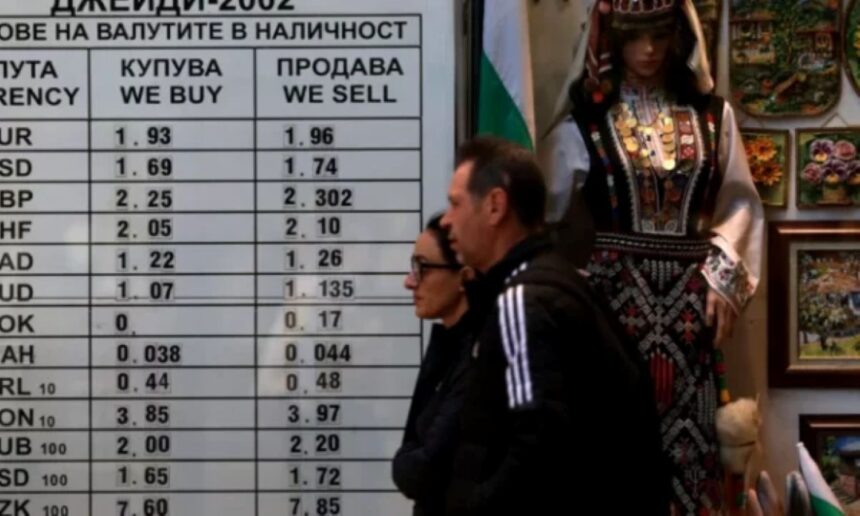Bulgaria is set to adopt the euro on January 1, 2026, making it the 21st member of the eurozone, despite ongoing domestic concerns.
After years of anticipation, EU officials told POLITICO that the European Commission and the European Central Bank (ECB) are expected to give their formal approval in a report to be released next Wednesday.
Joining the eurozone is expected to boost Bulgaria’s trade, reduce transaction costs, and increase its influence in Brussels.
“Adopting the euro will only strengthen Bulgaria’s sovereignty. We will participate in ECB decision-making,” said Atanas Pekanov, Bulgarian economist and former Deputy Prime Minister.
Although Bulgaria’s currency, the lev, has long been pegged to the euro, the country has had no say in ECB monetary policy. With eurozone membership, Bulgaria’s central bank governor will gain a seat on the ECB’s Governing Council—though, as the 13th smallest economy in the union (under 1% of EU GDP), Bulgaria’s influence will remain limited.
Ongoing Concerns
Critics warn of potential downsides. Adopting the euro may lead to a temporary price spike, especially impacting low-income households in rural areas, while businesses stand to benefit more from the currency switch.
In the medium term, domestic prices tend to rise to match higher EU norms—a trend seen in countries like Slovakia, Estonia, and Lithuania, all of which experienced initial inflation after joining the euro.
A major fear is rising costs of basic goods, such as vegetables, in areas with limited consumer choices.
“Voters in rural areas aren’t euroskeptics—they just fear a higher cost of living,” Pekanov explained.
Responding to such concerns, President Rumen Radev recently surprised the public by calling for a national referendum to delay euro adoption—a move likely to be rejected by the country’s Constitutional Court, which previously ruled such a vote unconstitutional.
The referendum proposal also lacks support in Parliament, where most political parties favor euro adoption.
“It makes no sense, just as we’re poised to boost our economic competitiveness by joining the eurozone, to start a fear-driven debate,” said Prime Minister Rossen Jeliazkov on Tuesday.
Bulgaria is currently on track to meet eurozone entry criteria, having significantly reduced inflation, one of its biggest previous obstacles.
To qualify, Bulgaria’s average inflation between April 2024 and April 2025 must be within 1.5 percentage points of the EU’s three lowest inflation rates—currently Ireland (1%), Italy (1.4%), and Luxembourg (1.6%).
Bulgaria brought inflation down from 4.7% in 2023 to 2.6% in 2024, but it’s expected to rise to 3.6% in 2025, mainly due to a VAT hike on several products earlier this year.







